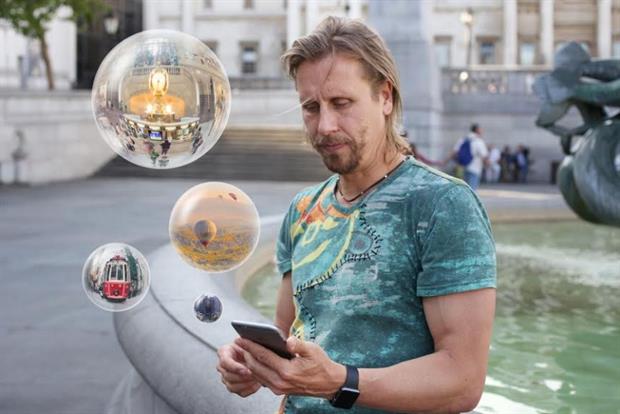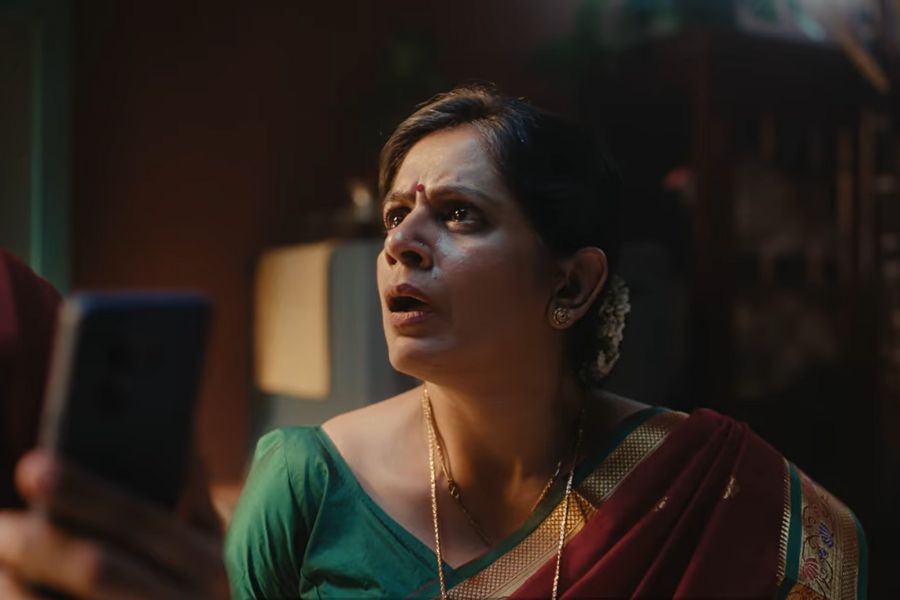Lotto heads up Lottolab Studio, a public engagement project based at UCL. He’s also behind Traces, an augmented reality app that tries to better merge the digital and physical worlds.
He argues that the current crop of social platforms damage rather than enhance human relationships, and that’s affecting brands too.
He told Marketing: "A lot of my research is on perception, how the brain makes sense of other people. It has to physically engage with the world and the people it cares about.
"We are involved in the body, and the body is involved with the world, and we can’t escape from that. Digital is a barrier to human engagement."
Shouting to share
There is a growing body of scientific and anecdotal evidence backing Lotto up. There’s the fact that intense Facebook use is linked to depression, or that smartphone use late at night can disrupt sleeping patterns.
Lotto’s answer is Traces, which lets users leave digital gifts in real-world locations. For example, a Traces user logging into the app can choose a location on a map, leave a digital ‘marker’ there, then attach a digital asset to that marker, like a Spotify playlist.
That asset can be left for anyone to find, or it can be sent to an individual. The intended recipient can open up the app, see that something has been left for them at a specified location, then head there to find it.
It’s a move away from the general broadcast model on Twitter, Instagram and Facebook, says Lotto, which encourages users to shout.
"Where brain gets value is in giving, not in receiving," said Lotto. "Traces is on the giving, not the receiving side."
"And what your brain also really loves is experience," he added. "People will spend more money for experiences than objects, and their significance lasts longer."
It’s hard to argue with the rationale for an unselfish social network, though user adoption is a question mark in a market driven by Periscope, vloggers and influencers.
Brands should build experiences
The app was launched last year, but Lotto now hopes brands will adopt Traces to build better relationships with their audience.
He said: "What I’m arguing for is the space between - to have content not on your phone but in the world itself."
Lotto adds that "interruption-based advertising" isn’t working, a sentiment shared more widely in the industry. He points to the rising use of ad-blockers as an example, and argues that brands should use digital to build relationships.
He said: "Brands have the potential to create experiences. They can reward people for being in a certain location – the effort to get a Trace boosts its value."
Psychologically that may be true, but anything that asks consumers to make an effort risks alienating them from brands, rather than reeling them in. The onus will be on brands to make it worth it.
Traces is also up against similar augmented reality services like Blippar or Aurasma, or even virtual reality. The technology is different, since Traces relies on GPS rather than visual recognition, but the concept is in the same ballpark as it links the physical and digital world.
For Lotto, Traces differentiates itself by focusing on creativity, rather than burdening the user with ads.
Lotto said: "Ours is creatively based – we don’t make a distinction between brands and users."
This is an important distinction, and similar to the route taken by Snapchat, where brands must be as creative as the users to win over users. That means no push notifications or gimmicky experiences, but an experience as authentic as if a user had posted it.
GoPro has previously used the app at SXSW to leave prizes around different venues and create scavenger treasure hunts. Oxfam has also launched a Traces campaign to boost donations.
Lotto isn’t revealing user numbers, but is hoping to drive growth with strong brand partnerships. He has a number of partnerships in the pipeline, though none he can reveal publicly. For Lotto, brands will only succeed in digital when they learn to give.
He said: "We have close relationships between five and 15 people, and that's also true for brands.
"We have brands that are close to us, like musicians, and we'll go further for those than for anything else. And in going further, we feel closer to the brand by having made that effort."
(This article first appeared on Marketingmagazine.co.uk)




